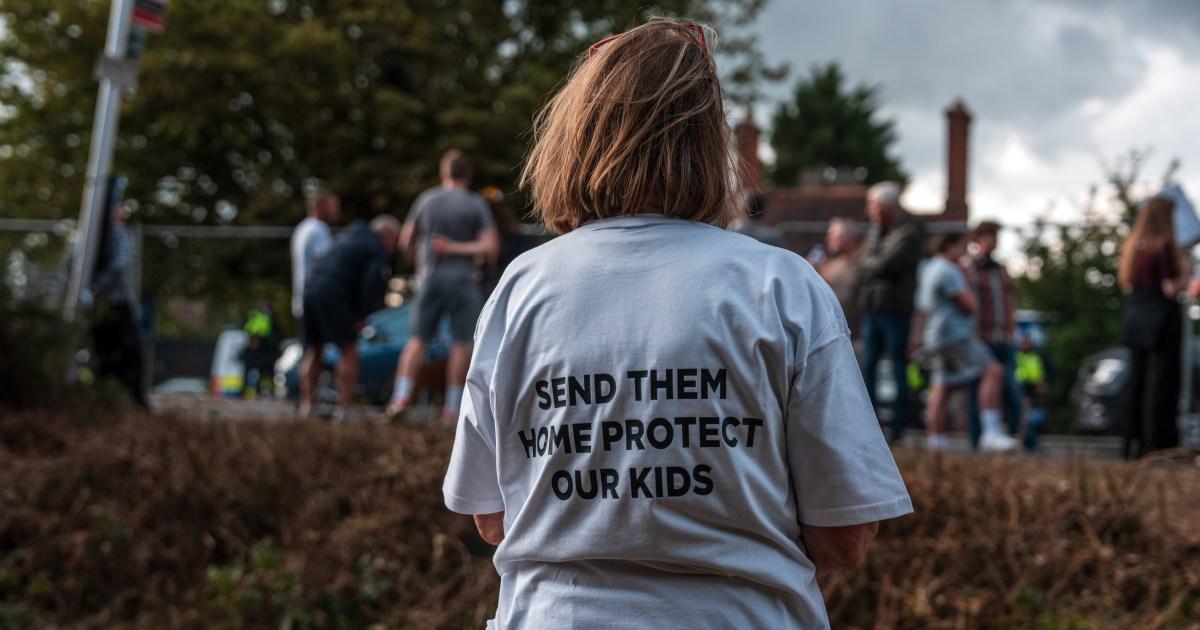Business
Protests in Epping Raise Concerns Over Political Use of Women’s Safety

Recent protests in Epping have sparked a heated debate regarding the motivations behind demonstrations framed as advocating for women’s safety. Some participants have expressed concerns about using a local hotel to house asylum seekers, claiming it threatens the safety of women and girls. Critics, however, contend that these protests may mask deeper political agendas.
Jon, a reader contributing to the MetroTalk discussion, highlighted a troubling contradiction within the movement. He noted that many individuals protesting for women’s safety have also defended Andrew Tate, a controversial figure criticized for misogynistic remarks. This has led to questions about the authenticity of their commitment to women’s rights.
The protests in Epping reflect a broader trend seen across Europe, where issues like violence against women and girls (VAWG) are sometimes leveraged as political tools. Observers argue that this pattern could extend to future claims about protecting LGBTQ individuals from asylum seekers, despite the fact that some protestors support policies detrimental to the LGBTQ community in the UK.
The backdrop of these protests includes a growing perception, fueled by social media, that asylum seekers pose a significant threat. For instance, a recent statement from Haven, a caravan park operator, aimed to clarify that their facilities are not housing asylum seekers. This clarification came after misleading social media claims suggested that “coaches of men” were arriving at their parks.
Statistics paint a different picture of the asylum seeker situation in the UK. With a land area of over 94,000 square miles and approximately 110,000 asylum seekers reported at the end of March, the density translates to less than one asylum seeker per square mile. This means that the overall UK population of 68 million people results in around 700 individuals per square mile, suggesting that the presence of asylum seekers is far from overwhelming.
Several voices in the community, including Peter Packham, Chair of Leeds for Europe, have called for compassion towards asylum seekers. He emphasized that the public should approach this situation with kindness rather than prejudice.
The protests have also sparked discussions about economic implications, particularly relating to housing and taxation. Some readers have expressed frustration over proposed property taxes on home sales, arguing that these could unfairly burden homeowners while failing to address broader issues of housing accessibility.
As debates continue, it remains clear that the intersection of women’s safety and asylum policies is complex. Moving forward, it will be essential to distinguish between genuine advocacy for vulnerable communities and the potential exploitation of these concerns for political gain. The discourse surrounding these protests highlights the need for a nuanced understanding of the issues at play as communities grapple with questions of safety, inclusion, and justice.
-

 Health3 months ago
Health3 months agoNeurologist Warns Excessive Use of Supplements Can Harm Brain
-

 Health3 months ago
Health3 months agoFiona Phillips’ Husband Shares Heartfelt Update on Her Alzheimer’s Journey
-

 Science2 months ago
Science2 months agoBrian Cox Addresses Claims of Alien Probe in 3I/ATLAS Discovery
-

 Science2 months ago
Science2 months agoNASA Investigates Unusual Comet 3I/ATLAS; New Findings Emerge
-

 Science1 month ago
Science1 month agoScientists Examine 3I/ATLAS: Alien Artifact or Cosmic Oddity?
-

 Entertainment5 months ago
Entertainment5 months agoKerry Katona Discusses Future Baby Plans and Brian McFadden’s Wedding
-

 Science1 month ago
Science1 month agoNASA Investigates Speedy Object 3I/ATLAS, Sparking Speculation
-

 Entertainment4 months ago
Entertainment4 months agoEmmerdale Faces Tension as Dylan and April’s Lives Hang in the Balance
-

 World3 months ago
World3 months agoCole Palmer’s Cryptic Message to Kobbie Mainoo Following Loan Talks
-

 Science1 month ago
Science1 month agoNASA Scientists Explore Origins of 3I/ATLAS, a Fast-Moving Visitor
-

 Entertainment2 months ago
Entertainment2 months agoLewis Cope Addresses Accusations of Dance Training Advantage
-

 Entertainment3 months ago
Entertainment3 months agoMajor Cast Changes at Coronation Street: Exits and Returns in 2025









